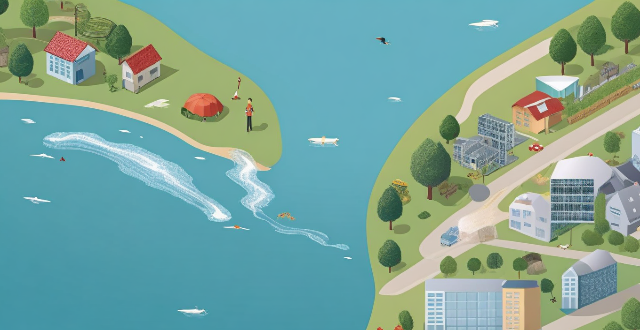Managing water resources sustainably is a complex task that involves various challenges, including climate change, population growth and urbanization, pollution and degradation of water bodies, overexploitation and unsustainable use, inadequate governance and policy frameworks, economic and financial constraints, social and cultural factors, technological limitations, ecological considerations, and international water sharing. Addressing these challenges requires a combination of technological innovation, policy reform, public education, and international cooperation. Sustainable water management is not only about ensuring enough water for current needs but also about preserving this vital resource for future generations.

Key Challenges in Managing Water Resources Sustainably
Managing water resources sustainably is a complex task that involves various challenges. These challenges are often interconnected and require a multi-faceted approach to address effectively. Here are some of the key challenges:
1. Climate Change
- Extreme Weather Events: More frequent and intense droughts, floods, and storms can strain water resources and infrastructure.
- Altered Hydrological Cycles: Changes in precipitation patterns and increased evaporation rates can affect water availability and quality.
2. Population Growth and Urbanization
- Increased Demand: Growing populations, especially in urban areas, lead to higher demand for water, which can exceed available supplies.
- Infrastructure Strain: Rapid urbanization can outpace the development of water supply and sanitation systems, leading to inefficient use and potential contamination.
3. Pollution and Degradation of Water Bodies
- Point Source Pollution: Industrial discharges, sewage overflows, and agricultural runoff can contaminate water sources.
- Non-point Source Pollution: Runoff from lawns, streets, and other diffuse sources can carry pollutants into water bodies.
4. Overexploitation and Unsustainable Use
- Groundwater Depletion: Overpumping of groundwater can lead to declining water tables and reduced well yields.
- Streamflow Depletion: Diverting too much water from rivers and streams can harm aquatic ecosystems and reduce water available for downstream users.
5. Inadequate Governance and Policy Frameworks
- Fragmented Management: Water resources are often managed by multiple agencies with overlapping or conflicting responsibilities.
- Lack of Integrated Planning: Without comprehensive planning that considers all water uses and stakeholders, management efforts may be ineffective or counterproductive.
6. Economic and Financial Constraints
- Funding Shortfalls: Adequate funding is essential for building, maintaining, and upgrading water infrastructure.
- Pricing Disincentives: Price structures that do not reflect the true value of water can lead to wasteful use and undermine conservation efforts.
7. Social and Cultural Factors
- Public Awareness and Education: Limited public awareness about water issues can hinder efforts to promote conservation and efficient use.
- Traditional Practices: Some cultural practices may not align with sustainable water management principles, requiring careful engagement and education efforts.
8. Technological Limitations
- Innovation Gaps: The lack of advanced technologies for water treatment, reuse, and conservation can limit options for sustainable management.
- Data Collection and Monitoring: Accurate data on water quantity and quality are essential for effective management but can be challenging to collect and analyze.
9. Ecological Considerations
- Biodiversity Loss: Dams, diversions, and other water projects can disrupt habitats and endanger species.
- Ecosystem Services: Healthy ecosystems provide services like water purification and flood control, which must be considered in management strategies.
10. International Water Sharing
- Transboundary Water Issues: Rivers that flow across national borders require cooperation between countries to manage sustainably.
- Political Tensions: Competition over shared water resources can exacerbate political tensions and conflicts between nations.
Addressing these challenges requires a combination of technological innovation, policy reform, public education, and international cooperation. Sustainable water management is not only about ensuring enough water for current needs but also about preserving this vital resource for future generations.